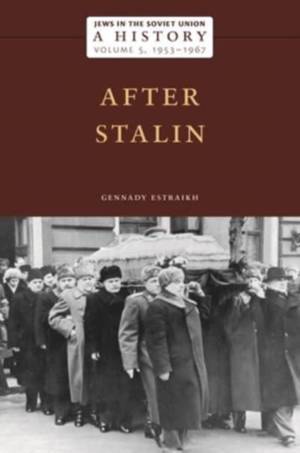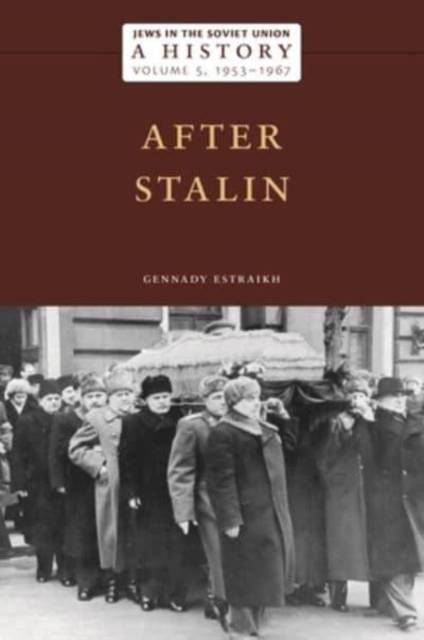
- Retrait gratuit dans votre magasin Club
- 7.000.000 titres dans notre catalogue
- Payer en toute sécurité
- Toujours un magasin près de chez vous
- Retrait gratuit dans votre magasin Club
- 7.000.0000 titres dans notre catalogue
- Payer en toute sécurité
- Toujours un magasin près de chez vous
Jews in the Soviet Union: A History
After Stalin, 1953-1967, Volume 5
Gennady Estraikh
Livre relié | Anglais
56,45 €
+ 112 points
Description
Offers an analysis of Soviet Jewish society after the death of Joseph Stalin
At the beginning of the twentieth century, more Jews lived in the Russian Empire than anywhere else in the world. After the Holocaust, the USSR remained one of the world's three key centers of Jewish population, along with the United States and Israel. While a great deal is known about the history and experiences of the Jewish people in the US and in Israel in the twentieth century, much less is known about the experiences of Soviet Jews. Understanding the history of Jewish communities under Soviet rule is essential to comprehending the dynamics of Jewish history in the modern world. Only a small number of scholars and the last generation of Soviet Jews who lived during this period hold a deep knowledge of this history. Jews in the Soviet Union, a new multi-volume history, is an unprecedented undertaking. Publishing over the next few years, this groundbreaking work draws on rare access to documents from the Soviet archives, allowing for the presentation of a sweeping history of Jewish life in the Soviet Union from 1917 through the early 1990s. Volume 5 offers a history of Soviet Jewry from the demise of the brutal dictator Joseph Stalin to the military confrontation between Israel and Arab states in 1967 known as the Six-Day War. Both historic events deeply affected Soviet Jews, who numbered over two million in the wake of the Holocaust and still formed at that point the second-largest Jewish population in the world. Stalin's death led to the release of political prisoners and the reduction of the level of fear in society. The economy was growing and conditions of life were improving. At the same time, the state had doubts about the loyalty of the Jewish population and imposed limitations on their educational and career prospects. The relatively liberal period associated with Nikita Khrushchev's "thaw" after the Stalinist bitter frost became a prelude to the years when contemplation about, or practical steps toward, emigration to Israel or elsewhere began to play an increasing role in the lives of Soviet Jews. In this pioneering analysis of the "thaw" years in Soviet Jewish history, Gennady Estraikh focuses both on the factors driving emigration and dissent, and on those Jews who were able to attain a high standard of living, and to rise to esteemed positions in managerial, academic, bohemian, and other segments of the Soviet elite.Spécifications
Parties prenantes
- Auteur(s) :
- Editeur:
Contenu
- Nombre de pages :
- 432
- Langue:
- Anglais
Caractéristiques
- EAN:
- 9781479819461
- Date de parution :
- 20-12-22
- Format:
- Livre relié
- Format numérique:
- Genaaid
- Dimensions :
- 157 mm x 231 mm
- Poids :
- 771 g

Les avis
Nous publions uniquement les avis qui respectent les conditions requises. Consultez nos conditions pour les avis.






